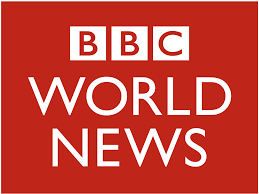Prince William: A New Era in Royal Duties

Introduction
Prince William, the Duke of Cambridge and second in line to the British throne, has increasingly taken on a prominent role within the royal family as it adapts to modern challenges. His actions and commitments reflect a dedication to various social issues, emphasizing mental health, environmental conservation, and support for veterans. As the monarchy faces scrutiny and calls for updates, Prince William’s approach resonates with a changing public sentiment.
Recent Engagements and Initiatives
In recent months, Prince William has spearheaded several initiatives that showcase his commitment to societal well-being. Notably, he has invested considerable effort into mental health campaigns, including the Heads Together initiative, which seeks to break the stigma surrounding mental health issues. This initiative has gained traction, particularly among younger audiences, emphasizing the importance of conversations about mental health in everyday life.
Additionally, his advocacy for environmental issues has been highlighted through projects such as the Earthshot Prize, which awards innovative solutions to environmental challenges. Launched in 2021, the initiative aims to encourage significant contributions toward sustainable practices. Earlier this year, William traveled to various countries to promote environmental awareness, demonstrating a global commitment to these issues.
Public Reception and Influence
Public reception of Prince William has evolved significantly over the years. Historically overshadowed by his mother, Princess Diana, and his younger brother, Prince Harry, William has established his unique identity through a well-rounded approach to royal duties. Recent polling data suggests an increase in favorable opinions towards him, especially among younger demographics who appreciate his modern approach to royalty.
Furthermore, his marriage to Catherine, the Duchess of Cambridge, has bolstered his public image. Together, they embody a partnership focused on family values, charity work, and public service, making them relatable figures amidst changing attitudes toward the monarchy.
Conclusion
As Prince William evolves in his role, his efforts reflect a broader shift in the British royal family towards addressing contemporary issues. With a focus on mental health, environmental sustainability, and community engagement, he represents a new generation of royals poised to connect with the public in meaningful ways. Looking ahead, the significance of his initiatives will likely shape the future of the monarchy, impacting how it is perceived both domestically and internationally. Prince William’s journey suggests a move towards a more approachable, relevant royal family—one that aligns itself with the values and concerns of today’s society.









